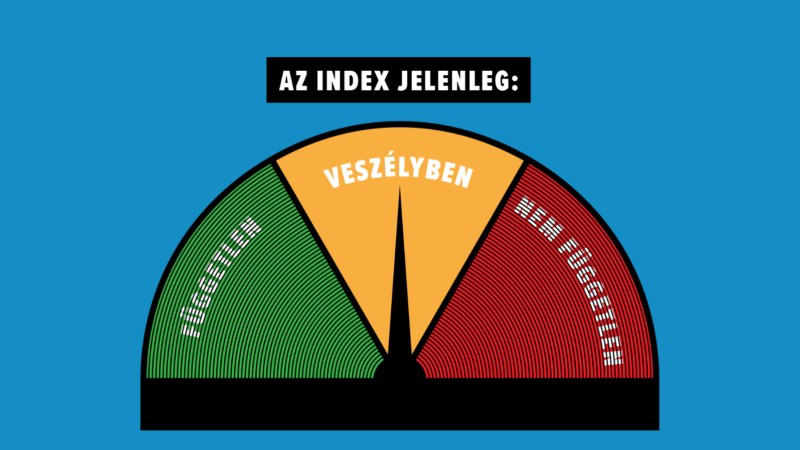Firing of Hungarian Newspaper Editor Stokes Press Freedom Fears
Another blow to the country's few remaining independent news outlets

The editor of Index, Hungary's largest independent news site, was fired on Wednesday, sparking fears that the country's increasingly authoritarian government is encroaching on one of the country's few remaining independent news outlets. On Friday, Index's editorial board and 70 of its staffers resigned to protest the dismissal.
László Bodolai, CEO of Index's parent organization, says he fired Szabolcs Dull because the editor had leaked plans for a major company reorganization and failed to control newsroom tensions. (The reorganization proposal would outsource certain functions of the editorial board to external companies.) Bodolai claims the drama was scaring off advertisers, leading to a drop in revenue.
Critics note that the pro-government businessman Miklós Vaszily purchased Indamedia, which sells Index's advertising, earlier this year. Vaszily manages the Central European Press and Media Foundation (KESMA), a government-linked media conglomerate that has consolidated control over most of the country's news outlets. In 2014, the previously independent news site Origo became a government mouthpiece under Vaszily's leadership.
Hungary's ruling Fidesz party does not control the country's press directly. But that's not unusual for the so-called "new autocrats" that arose after the collapse of the USSR. In their 2010 book Competitive Authoritarianism, Lucan Way and Steven Levitsky argue that under such regimes, "major media outlets are linked to the governing party—via proxy ownership, patronage, and other illicit means." KESMA operates on similar principles. The organization is owned by a government-affiliated media magnate, and its advisory board consists of a pro-government think tank director, a former Fidesz candidate, and Prime Minister Viktor Orban's former lawyer.
Hungary has recently experienced a marked decline in press freedom. Reporters Without Borders ranks the country just 89th in its global 2019 Press Freedom Index, calling the government's media control "unprecedented in an E.U. member state." (When Orban took office in 2010, Hungary was ranked 23rd.) Marius Dragomir of the Center for Media, Data and Society estimated in 2017 that the Hungarian government controls 90 percent of the country's media, making independent news sources an increasingly rare commodity.
After the Index's reorganization plan was released, Dull moved the site's independence barometer from "Independent" to "In Danger," writing that the outlet "is under such external pressure that could spell out the end of our editorial staff as we know it." The barometer was created two years ago, following a partial change in the site's ownership, to inform readers whether Index's independence was being compromised. A letter from Index newsroom staff claims that Bodolai has "tried to force us to move the barometer back into the green zone." The "reason for Dull's dismissal," the letter adds, "was that he made it clear that he will not yield to blackmail."
For his part, Badalai insists that "the political independence of Index is not at risk" and the reorganization plan was rejected by upper management.


Show Comments (31)